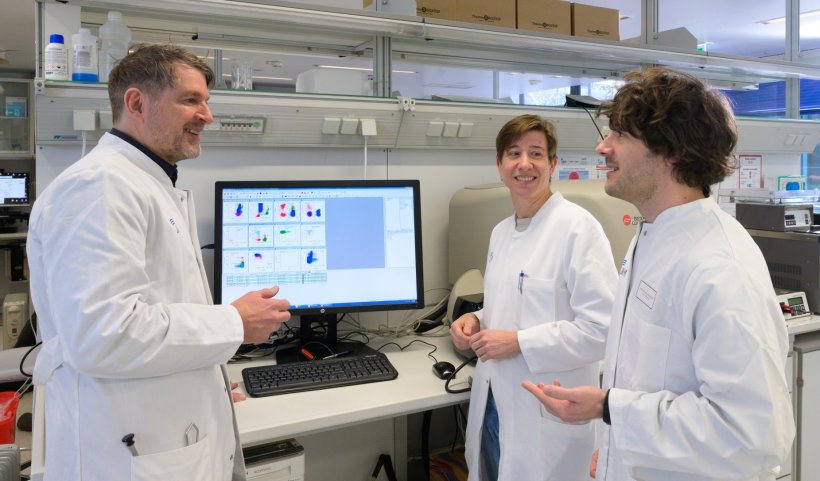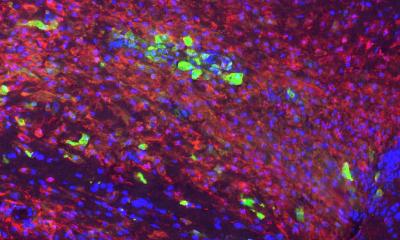
Image credit: Uni MS/Wibberg
News • New-found blood signatures
Multiple sclerosis: subtype discovery opens new ways for personalized therapy
An international team of researchers, led by the University of Münster and Department of Neurology at the University Hospital of Münster, Germany, in collaboration with the German Competence Network Multiple Sclerosis (KKNMS), has made a significant breakthrough in the understanding and potential treatment of multiple sclerosis (MS).
The researchers published their study in the Journal Science Translational Medicine. Their findings reveal the identification of three distinct immunological endophenotypes of MS, defined by specific blood immune signatures associated with different disease trajectories. This discovery opens new avenues for personalized treatment strategies, addressing the long-standing challenge of individualized treatment selection in MS therapy.
MS is a complex and unpredictable disease, affecting more than 2.8 million people worldwide. It has long been recognized for its varied clinical manifestations and progression, making effective treatment a significant challenge. Traditional approaches to treatment have often been a one-size-fits-all solution, not taking into account the underlying distinct immunopathology prevailing in each patient.
Our study not only challenges the current treatment paradigm but also helps to provide a practical tool for clinicians to predict disease progression and treatment response
Luisa Klotz
The study, which analyzed data from over 500 early MS patients across two independent cohorts, utilized high-dimensional flow cytometry and serum proteomics to map the immune system's complexity in unprecedented detail. The researchers' sophisticated analysis identified three distinct immunological endophenotypes, each associated with specific disease pathways and responses to treatment. "These findings represent a pivotal shift towards precision medicine in MS," stated Prof. Heinz Wiendl, one of the lead authors of the study. "By understanding the individual immune system variations among patients, we can move closer to personalized treatment plans that are more effective and have fewer side effects."
The endophenotypes, named based on their primary characteristics—'inflammatory', 'degenerative', and a third yet to be fully characterized—show distinct responses to common MS treatments. Notably, patients within the 'inflammatory' endophenotype showed limited benefit from interferon-beta treatment, suggesting that alternative therapies might be more effective for this group. "Our study not only challenges the current treatment paradigm but also helps to provide a practical tool for clinicians to predict disease progression and treatment response," added Prof. Luisa Klotz, co-lead author. "This could significantly improve the quality of life for individuals living with MS."
Further, the study highlighted the potential for using these endophenotypes as markers for disease prognosis and treatment efficacy. This insight could guide the development of new therapeutic agents targeted at specific pathways within these endophenotypes.
The findings have been welcomed by the neurology and neuroimmunology communities as a major step forward in the fight against MS. They underscore the importance of individualized care and the potential for significantly improving treatment outcomes by tailoring therapies to the patient's specific immune signature.
Source: University of Münster
05.04.2024





